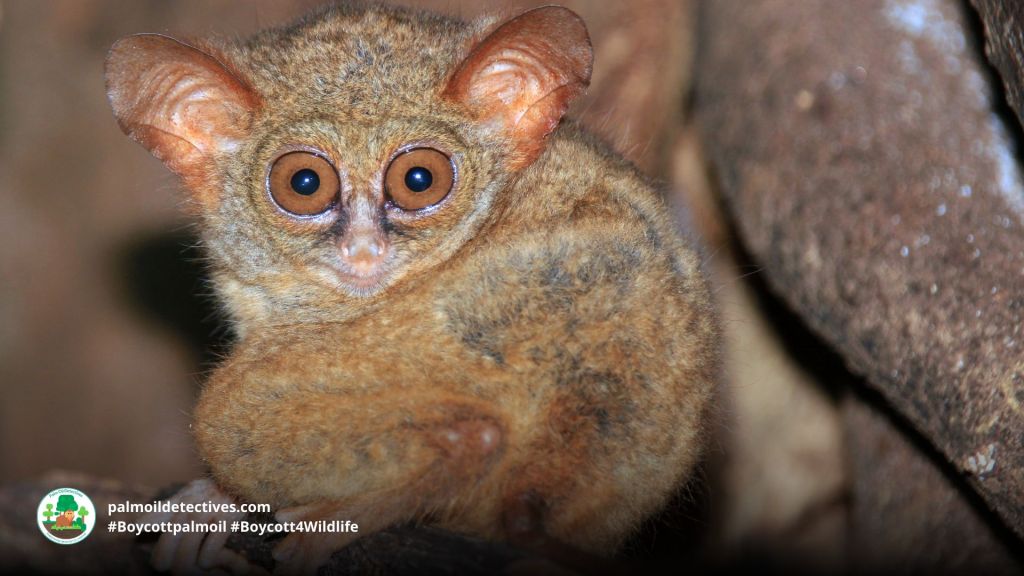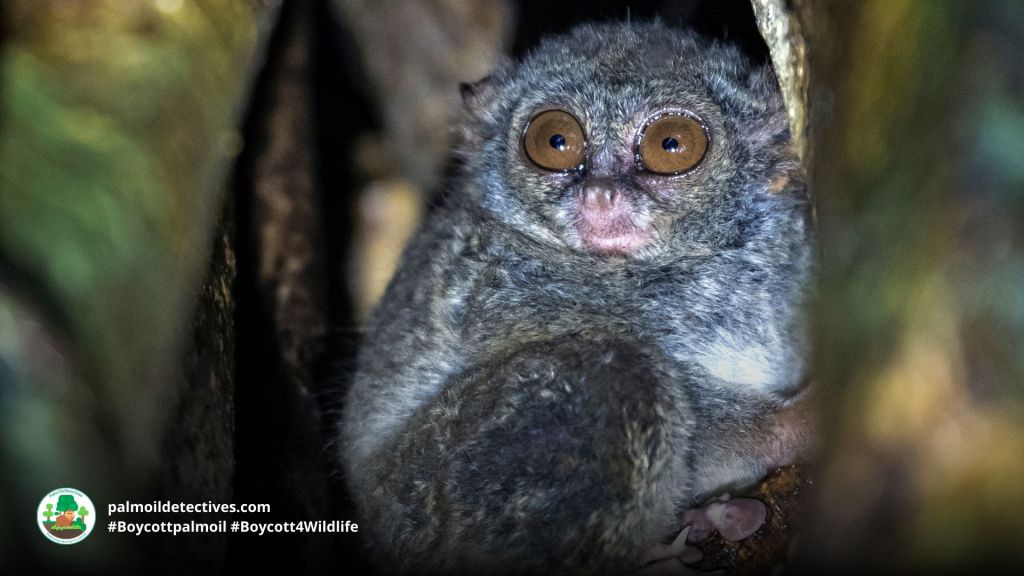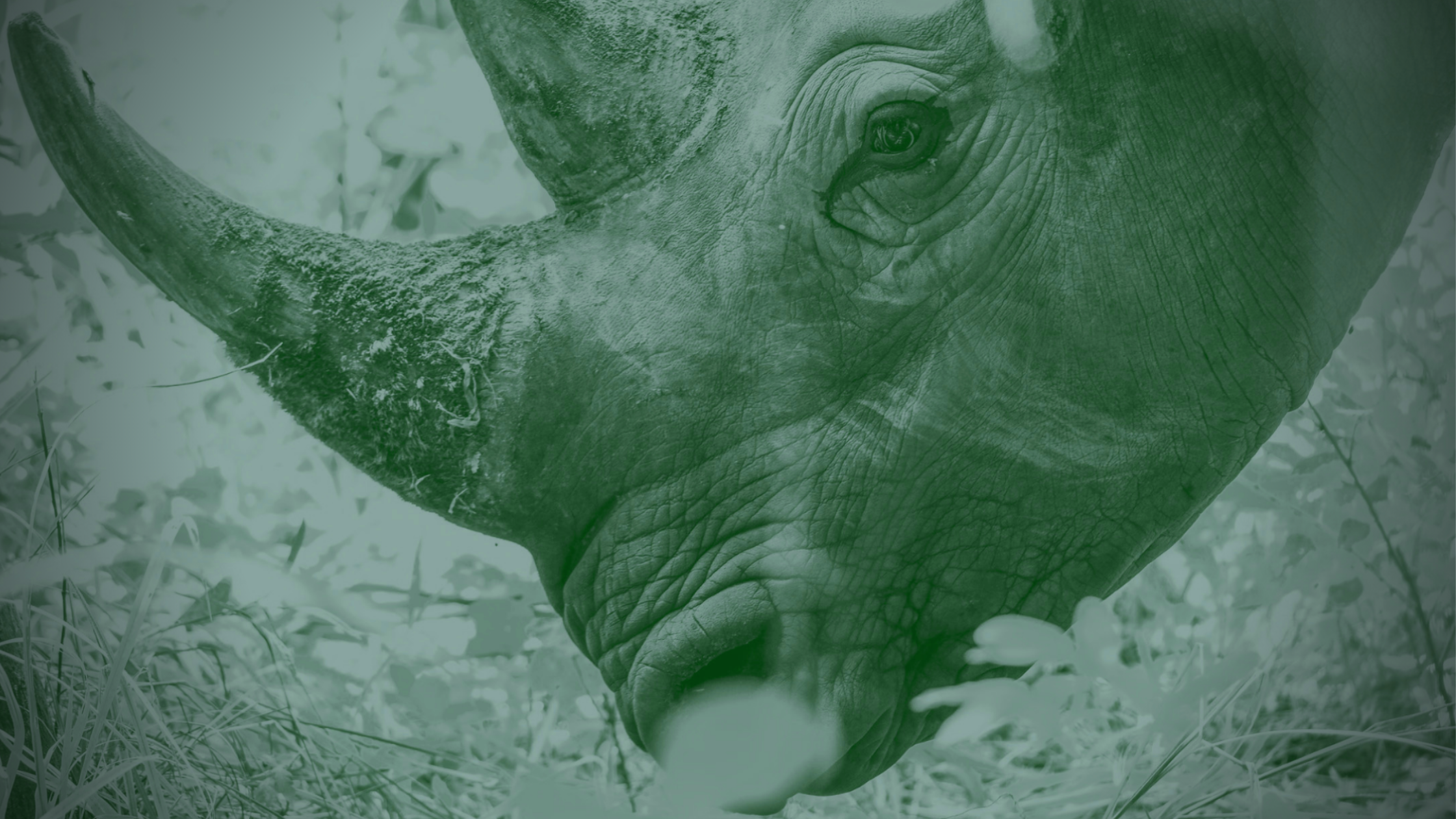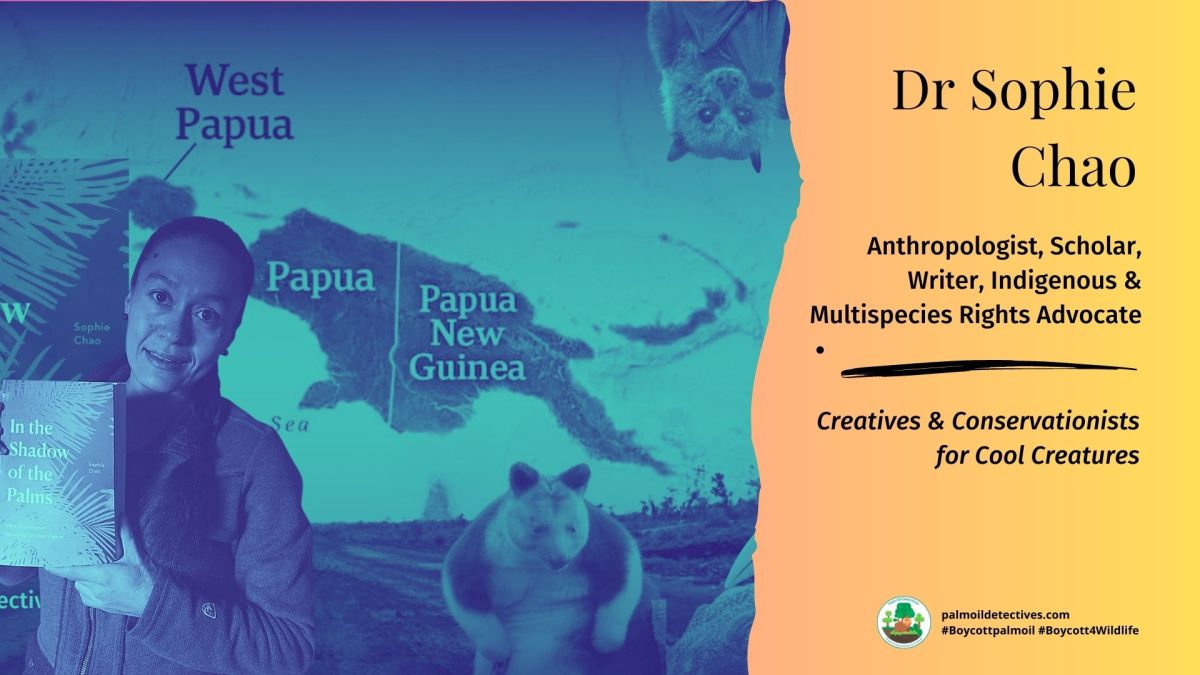Spectral Tarsier Tarsius tarsier
Vulnerable
Sulawesi, Indonesia
These adaptable creatures are able to cling and leap in the understory of suitable tropical habitats, often two meters or less from the ground. Nocturnal social primates, the Spectral Tarsier likely live in small, monogamous or polygamous groupings of up to 26 individuals, although further study is needed. The home range is believed to be less than one hectare. Their diet is 100% live animal prey, mostly insects with some small vertebrates.
The Spectral Tarsier is a wide-eyed cutie that clings to trees in the forest, they are vulnerable in #Sulawesi #Indonesia. Threats incl. #palmoil #deforestation and the illegal #pettrade. Help them and #Boycottpalmoil #Boycott4Wildlife
Tweet

Major threats include habitat loss due to agriculture, illegal logging, mining of limestone for cement manufacture, agricultural pesticides, and predation by domestic animals (dogs and cats). Based on habitat loss alone, this species is considered Vulnerable in that at least 30% of the habitat has been converted in the past 20 years (approximately three generations).
IUCN Red List
From 1990 to 2000, about 15.26% of the forest habitat on the island was converted to agriculture (A. Salim pers. comm.), and since that time at least an additional 10% has been lost.




Support the conservation of this species
This animal has no protections in place. Read about other forgotten species here. Create art to support this forgotten animal or raise awareness about them by sharing this post and using the #Boycottpalmoil #Boycott4Wildlife hashtags on social media. Also you can boycott palm oil in the supermarket.
Further Information

Shekelle, M. 2020. Tarsius tarsier. The IUCN Red List of Threatened Species 2020: e.T162369551A17978304. https://dx.doi.org/10.2305/IUCN.UK.2020-3.RLTS.T162369551A17978304.en. Downloaded on 08 February 2021.

How can I help the #Boycott4Wildlife?
Contribute in five ways
1. Join the #Boycott4Wildlife on social media and subscribe to stay in the loop: Share posts from this website to your own network on Twitter, Mastadon, Instagram, Facebook and Youtube using the hashtags #Boycottpalmoil #Boycott4Wildlife.
2. Contribute stories: Academics, conservationists, scientists, indigenous rights advocates and animal rights advocates working to expose the corruption of the palm oil industry or to save animals can contribute stories to the website.
3. Supermarket sleuthing: Next time you’re in the supermarket, take photos of products containing palm oil. Share these to social media along with the hashtags to call out the greenwashing and ecocide of the brands who use palm oil. You can also take photos of palm oil free products and congratulate brands when they go palm oil free.
4. Take to the streets: Get in touch with Palm Oil Detectives to find out more.
5. Donate: Make a one-off or monthly donation to Palm Oil Detectives as a way of saying thank you and to help pay for ongoing running costs of the website and social media campaigns. Donate here








